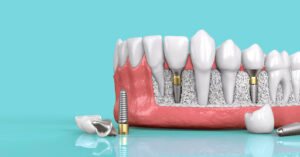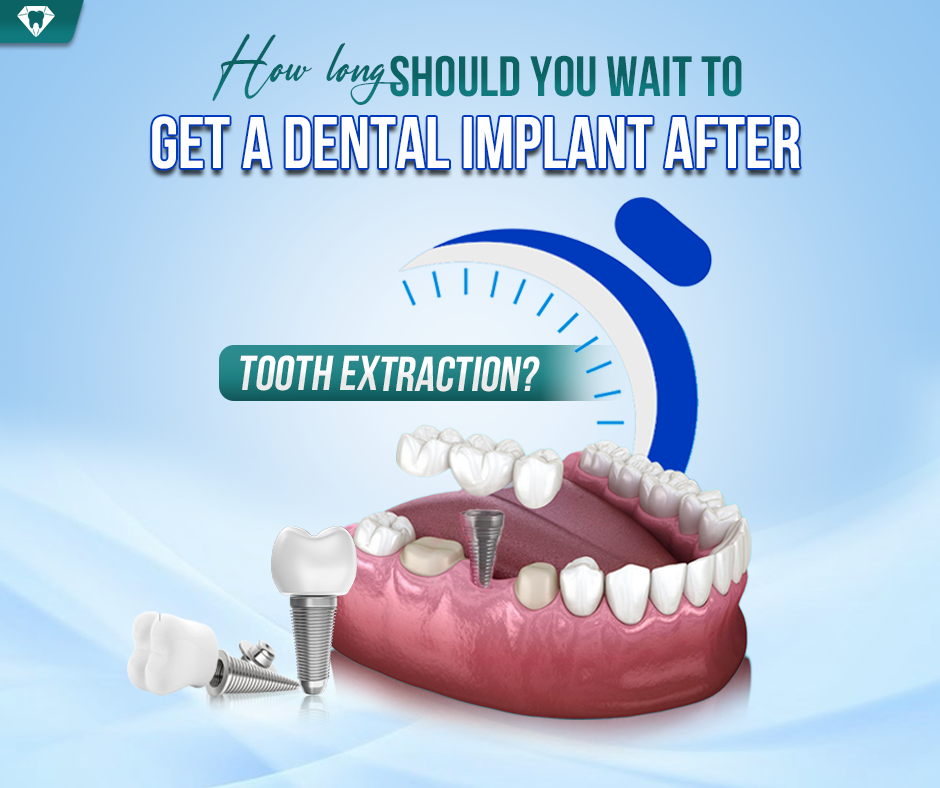Getting a dental implant after tooth extraction is a topic that many people are interested in, especially those who want to restore both aesthetics and function to their smile. But does the timing of an implant affect the success of the treatment? When is the best time to get a dental implant after tooth removal?
Let’s explore this topic in depth with Joy International Dental Clinic, so you can make the most informed decision and choose the optimal time to restore your missing tooth.
1. When Is the Right Time to Get a Dental Implant?

Dental implants are considered one of the greatest advancements in modern dentistry. However, deciding when to get a dental implant isn’t as simple as it may seem. It’s not always the case that you can get an implant immediately after losing a tooth.
Several factors come into play, such as:
-
Your overall health condition
-
The healing status of your gum tissue
-
Bone density and volume in the jaw
-
The presence of any infection at the extraction site
If you’re in good general health, have strong jawbone structure, and your gum tissue is healing well, then getting a dental implant early is often recommended. Early implantation helps prevent bone loss in the jaw and maintains the natural contour of your face. It also allows you to return to normal eating and speaking more quickly.
On the other hand, if you suffer from advanced gum disease, uncontrolled diabetes, or if you’re a regular smoker, it’s crucial to manage those conditions before considering an implant. Delaying the procedure in such cases helps reduce complications and ensures a higher success rate for the implant.
2. How Long After Tooth Extraction Should You Get an Implant?
There isn’t a one-size-fits-all answer. Whether you can get an implant immediately after extraction or need to wait depends on your oral condition, treatment goals, and your dentist’s recommendation.
There are generally two main approaches:
2.1. Immediate Implant Placement (Same Day as Extraction)

This method involves placing the dental implant right after the tooth is extracted.
Advantages:
-
Time & Cost Efficiency: One surgical session covers both extraction and implant placement, which means fewer visits, quicker results, and reduced discomfort.
-
Prevents Bone Loss: The implant stimulates the jawbone, reducing the risk of bone resorption – a common issue when teeth are missing for extended periods.
-
Better Aesthetics: Especially in visible areas like the front teeth, immediate placement helps preserve the natural shape of the gum and enhances the final look of the artificial tooth.
Disadvantages:
-
Not for Everyone: This option only works if the extraction site is free of severe infection or inflammation. Presence of pus, abscess, or extensive tissue damage may delay the procedure.
-
High Technical Demand: Requires advanced equipment and a highly experienced dentist to ensure precision and safety.
-
Greater Need for Post-Op Care: Any complications like infection or implant rejection need close monitoring, especially in the first few weeks.
2.2. Delayed Implant Placement (1–2 Months After Extraction)

This is a more common and conservative approach, often chosen when the gums or surrounding bone need time to heal after tooth removal.
Advantages:
-
Lower Risk of Infection: The gum tissue has time to stabilize, reducing the chance of postoperative complications.
-
More Accurate Planning: Dentists can better evaluate bone structure and design a personalized treatment plan based on healed anatomy.
-
Suitable for Medically Compromised Patients: People recovering from dental or systemic health issues can undergo implant surgery more safely after this period.
Disadvantages:
-
Risk of Bone Resorption: Waiting longer than 2–3 months may lead to significant bone loss, which can complicate the procedure and require additional bone grafting.
-
More Dental Visits: Compared to same-day implants, this approach involves more appointments and possibly longer total treatment time.
-
Aesthetic Concerns: If the missing tooth is in a visible area, it may affect your confidence while waiting for the final restoration.
3. Important Things to Know Before and After Dental Implant Surgery

To ensure a smooth recovery and high implant success rate, there are a few key guidelines you should follow.
Before Implant Surgery:
-
Comprehensive Dental Evaluation: Get a full dental check-up, including 3D imaging (like CT scans), to assess your jawbone and gum health.
-
Medical Screening: Undergo blood tests if necessary to rule out systemic conditions like uncontrolled diabetes, hypertension, or cardiovascular disease.
-
Stop Smoking: If you smoke, quit at least one week prior to surgery. Nicotine significantly slows down healing and increases the chance of implant failure.
-
Fasting Before Surgery: If your dentist uses general anesthesia or sedation, avoid eating or drinking 4–6 hours before the procedure.
After Implant Surgery:
-
Apply Cold Compress: Use ice packs on the cheek near the surgical area within the first 24 hours to reduce swelling and discomfort.
-
Eat Soft Foods: Stick to liquids and soft meals like porridge, soups, and yogurt during the first few days.
-
Gentle Oral Care: Avoid vigorous rinsing or spitting, as it can disrupt the healing process. Use a soft toothbrush and rinse with prescribed antiseptic mouthwash.
-
Follow-Up Appointments: Attend all scheduled check-ups so your dentist can monitor the implant’s integration with the jawbone.
-
Avoid Physical Exertion: Refrain from heavy lifting or intense workouts for at least 48 hours after surgery.
Conclusion
Dental implants to improve chewing function is a great choice. However, you also need to know how long after tooth extraction is best to implant. Whether you want to implant immediately or wait 1-2 months. You should still consult your doctor. If you have any questions, you can contact Joy International Dental Clinic directly for more detailed advice.






